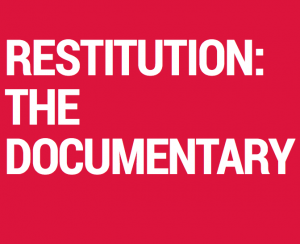Restitution: The Project
A Complex Issue
World War 2 ends.
You’ve seen the systematic massacring of your friends, family and countrymen.
Time to rebuild from the ashes.
But your house is being lived in. Your business has undergone a name change.
You think the government might help, but it really has bigger problems to deal with, including re-establishing basic order. Left to fend for themselves, those in possession of your estate, are not willing to part with their comforts. They fight to keep your property…and not with words.
WWII saw billions of dollars worth of Polish property taken from its rightful owners. Surprisingly, although the pre-WWII Jewish population owned an estimated 15-20% of all private property, some 80% of claims for restitution are by Polish Christians.
The Mess
There’s a lot to consider here in terms of all the stakeholders and how they’d be impacted by any restitution. The property has been bought and sold many times over. Taxes paid for the land. Governments have rotated between communist, socialist, and at times, democratic – each one implementing policies that overwrite any previous plans. There was no waiting. Progress, at whatever expense, needed to be made. Poles, in Poland or abroad, needed to get on with their lives. Who wants to relive the horrors?
This isn’t a unique situation, nor is it one with a simple solution.
How far back can we go?
Native Americans, victims of slavery, Incas, Aztecs…that’s just to name a few. There are victims of war, victims of systemic injustice (racism, homophobia, sexism etc.) and more.
There’s a statute of limitations – but what about when you’ve been trying for decades or more to no avail? There’s the reality that a solution would need popular support. Restitution for property valued in the billions of dollars would mean tax increases. Someone has to pay for that.
Is a house like a stolen vehicle? And if that is the case, and the property can be confiscated, can the current owner sue the person who sold him the home? Continuing down the line, where does it stop?
Why?
The issue is fascinating. Poland is only one example, but it stands out on several fronts. Perhaps because most major European countries have already passed restitution acts. Perhaps because there’ve been promises of action, bills brought forward, though never coming to fruition. Perhaps because of the size – the monetary impact of a restitution bill. The victims are dying off, their grandchildren are taking over their fights, intrigued by a past that’s been so alien to them.
Poland is not unique.
There are many other victims of tragic, illegal seizures of property around the world. Some going way back, some being victimized as you read this. And it will continue to happen.
The question is how do we deal with restitution?
Who is held accountable?
I’ve been working with Quatres Jeudis director and producer Eric Scott on a documentary about Polish restitution. Eric is going to Poland in October to begin shooting and uncover all the different stories and opinions waiting to be shared. If you are interested in learning more or helping to fund the project, please visit the Restitution: The Documentary website.
